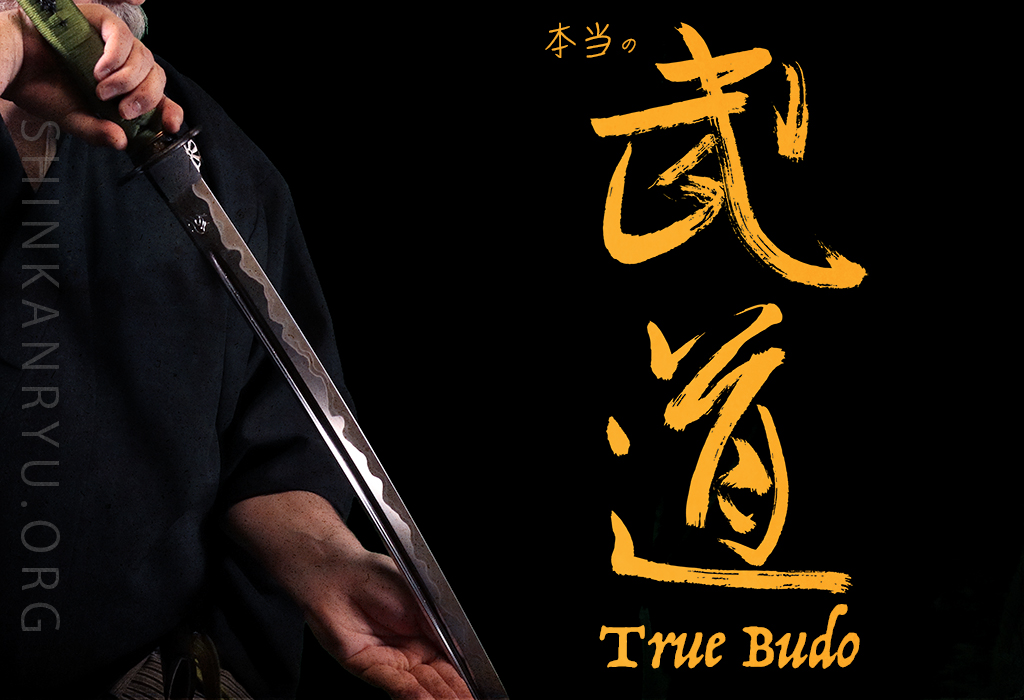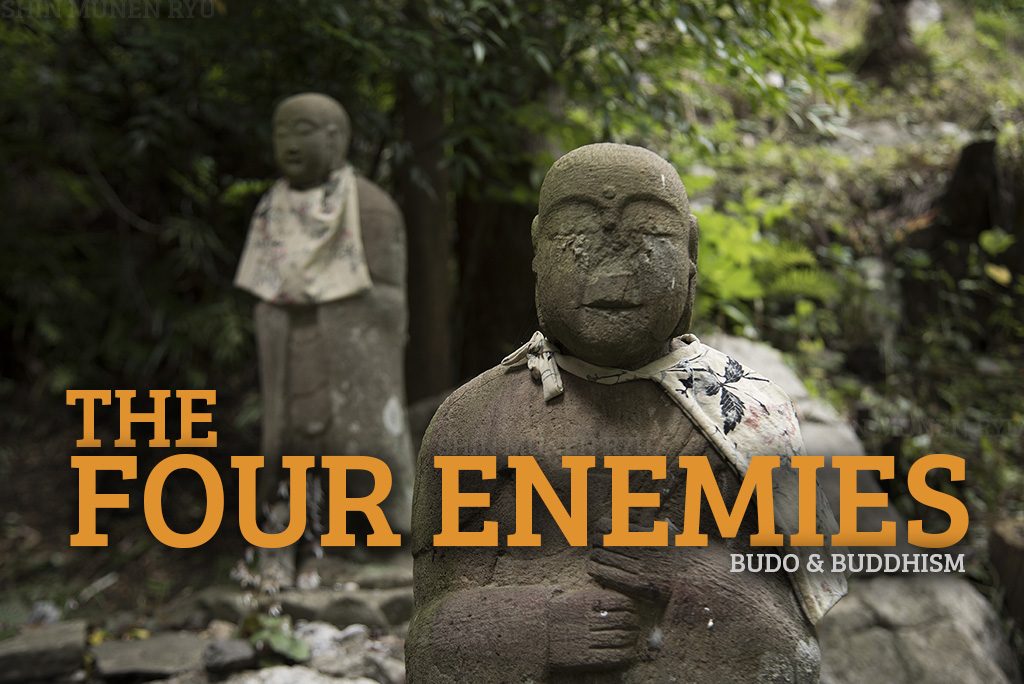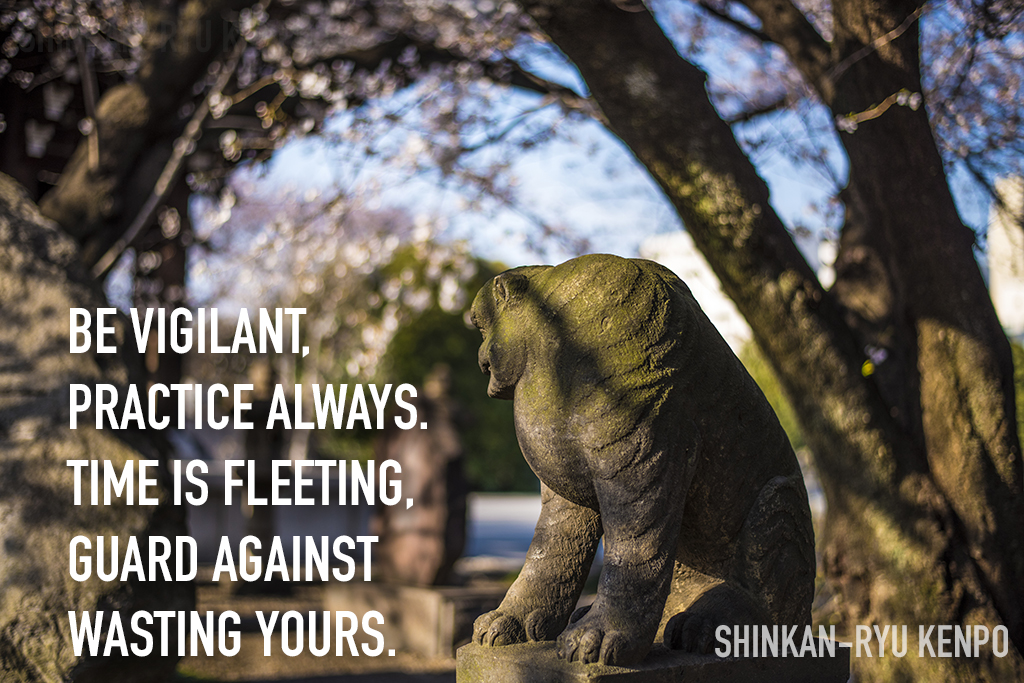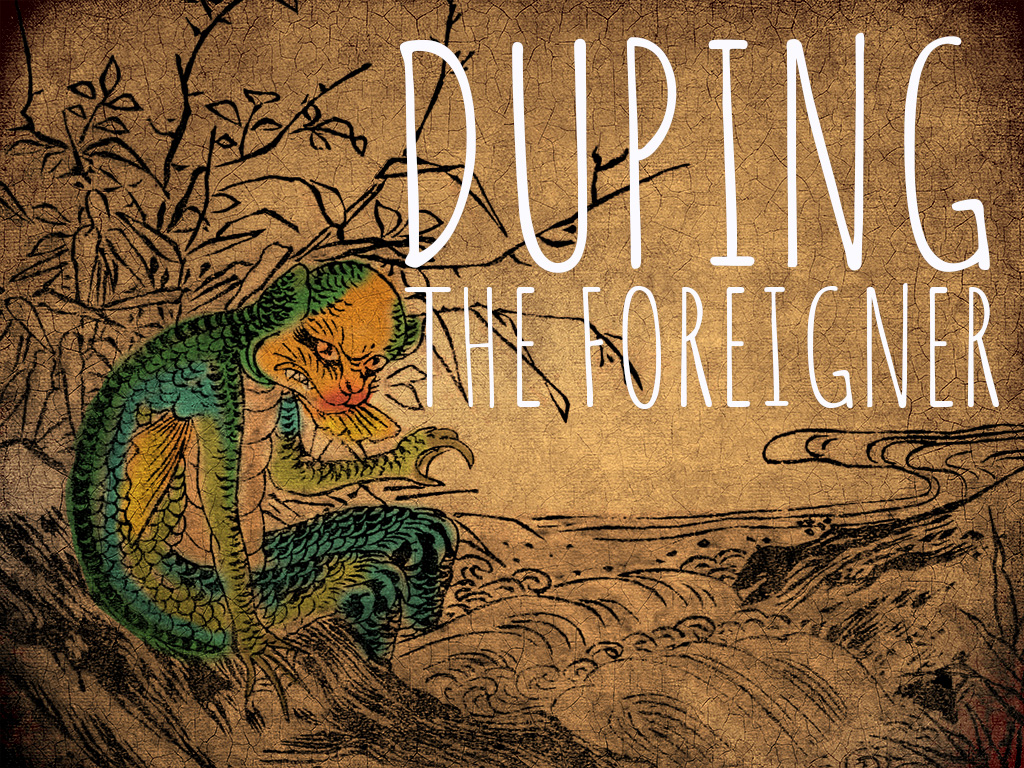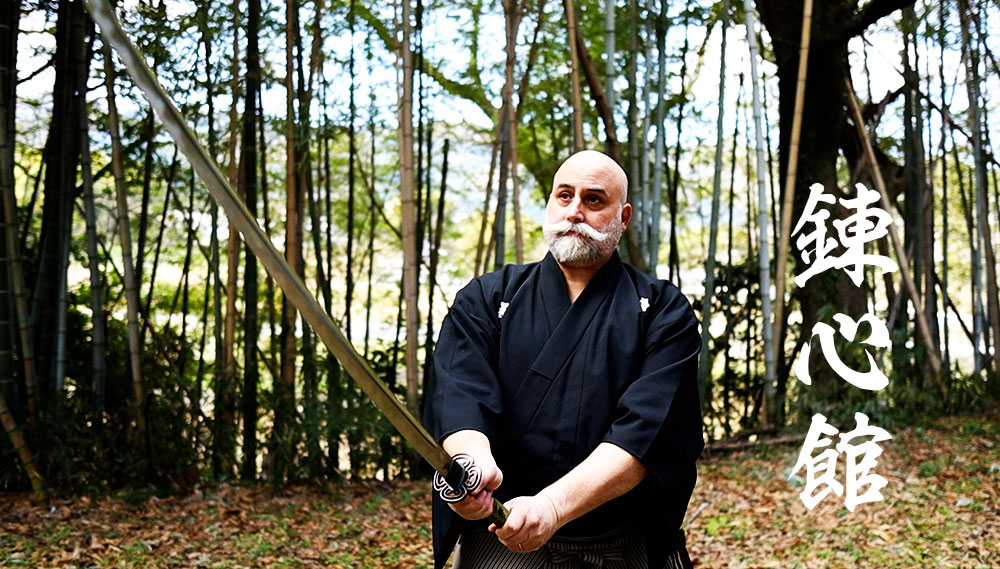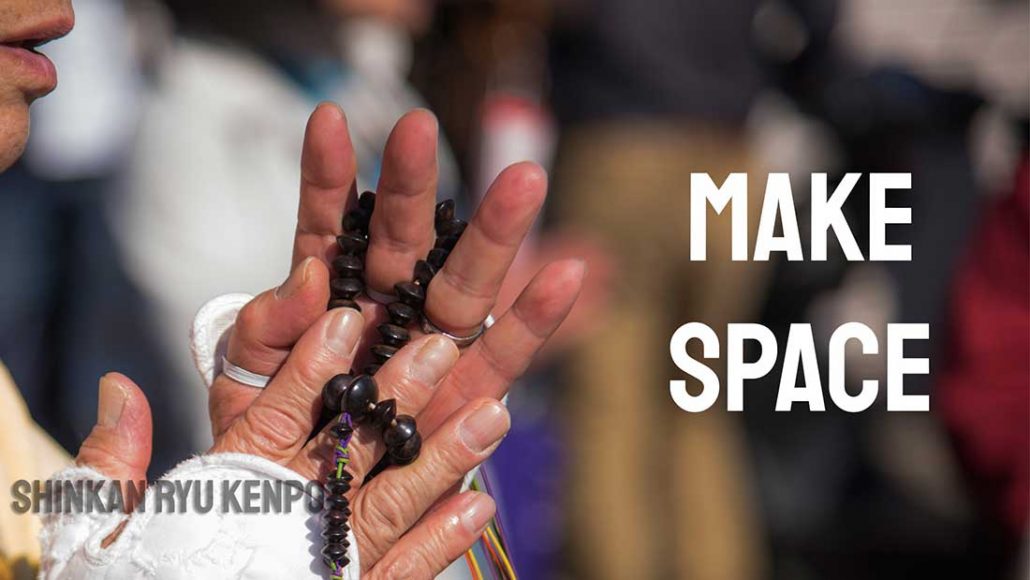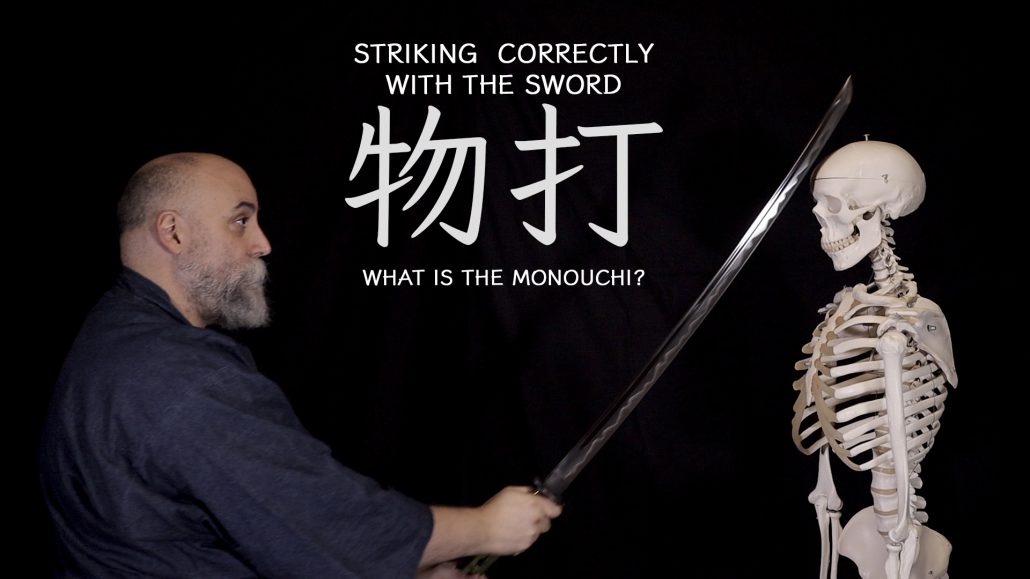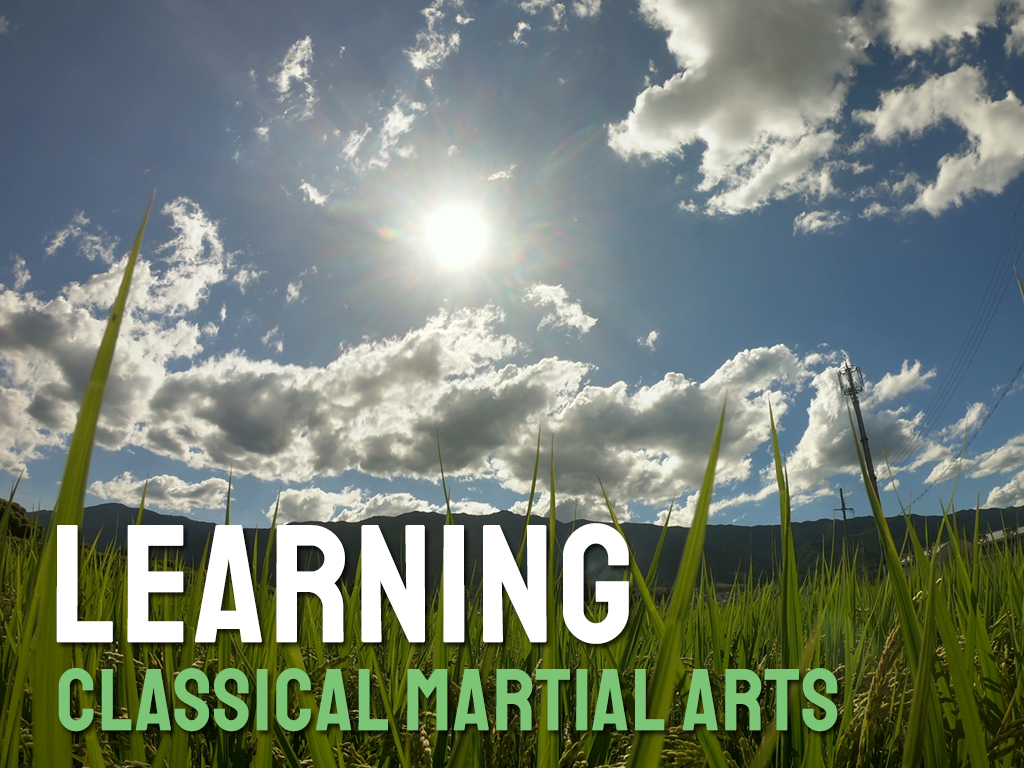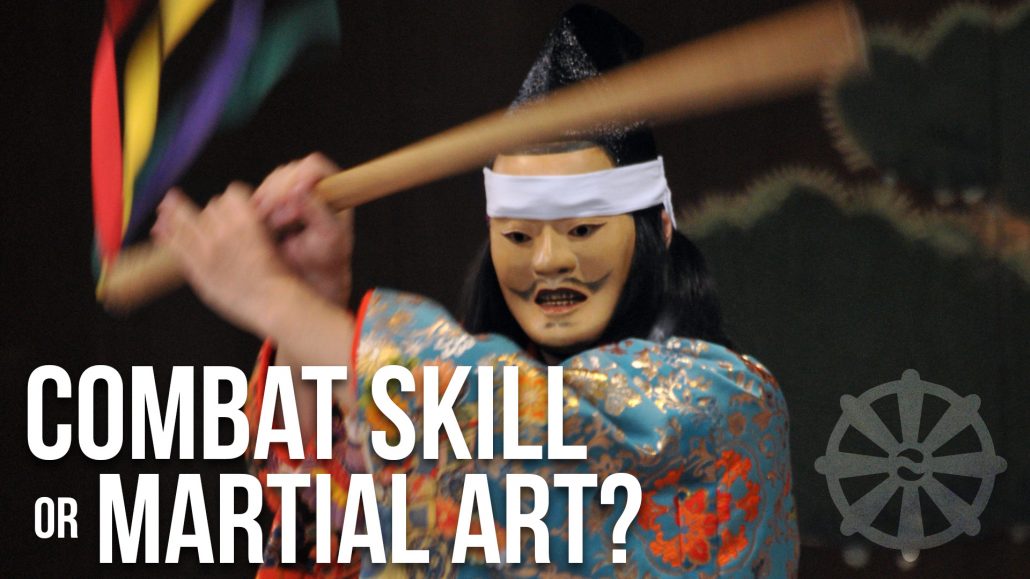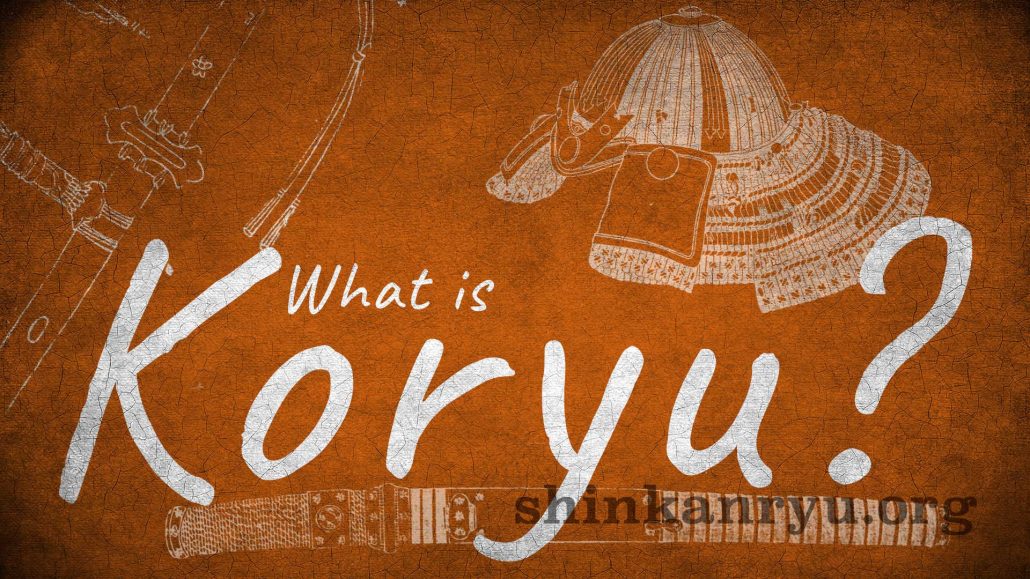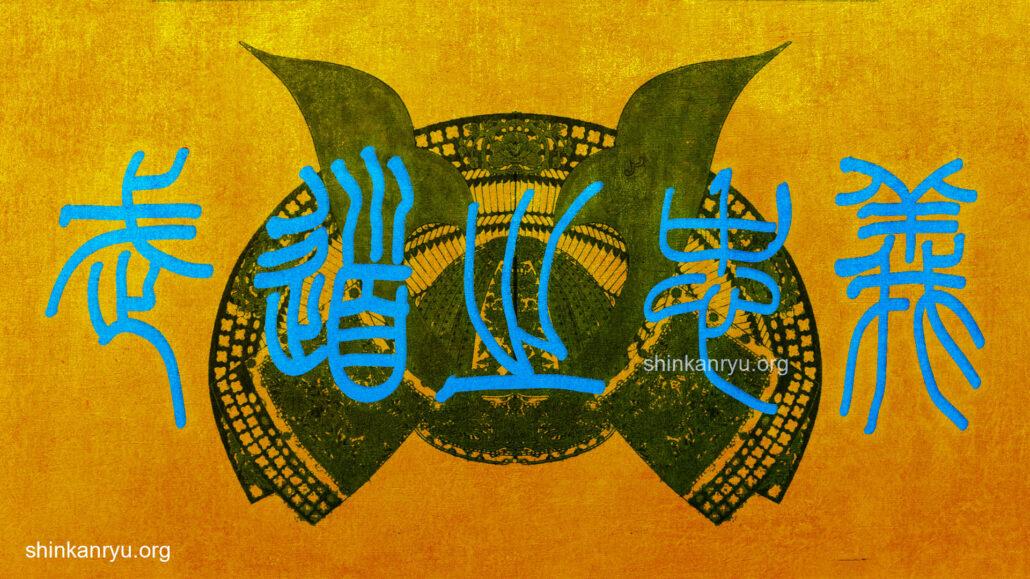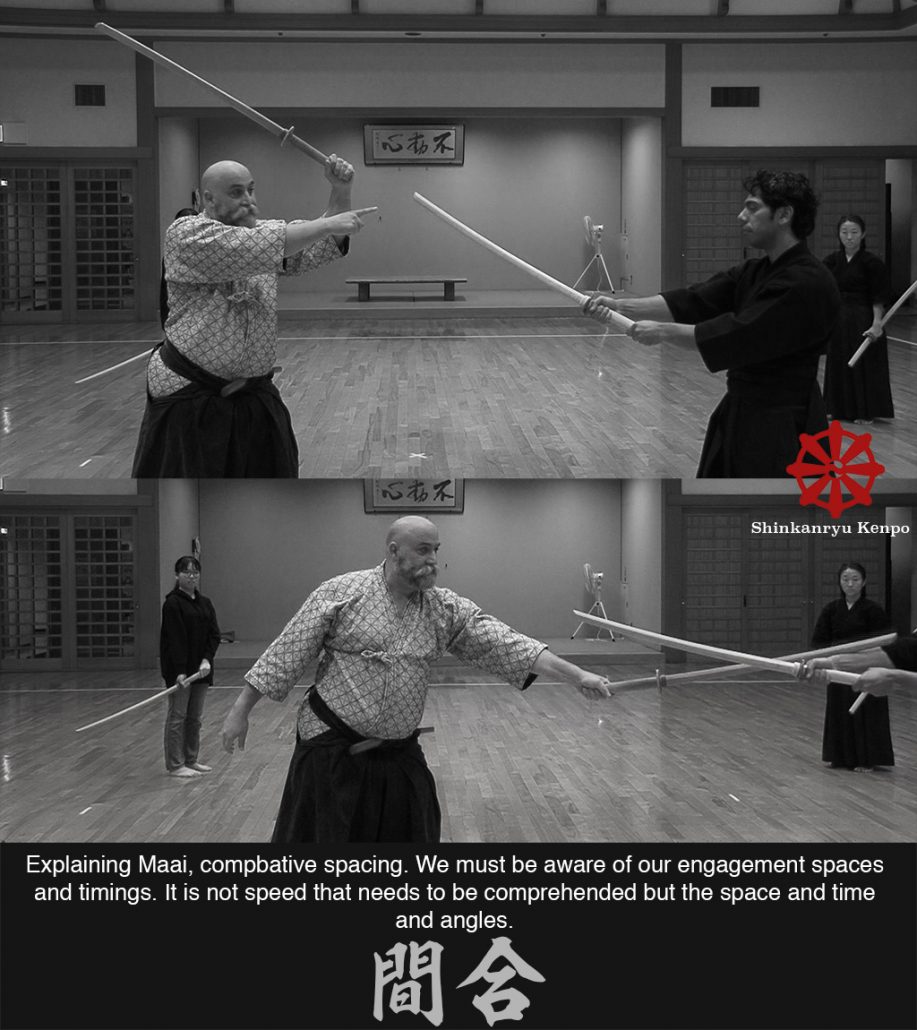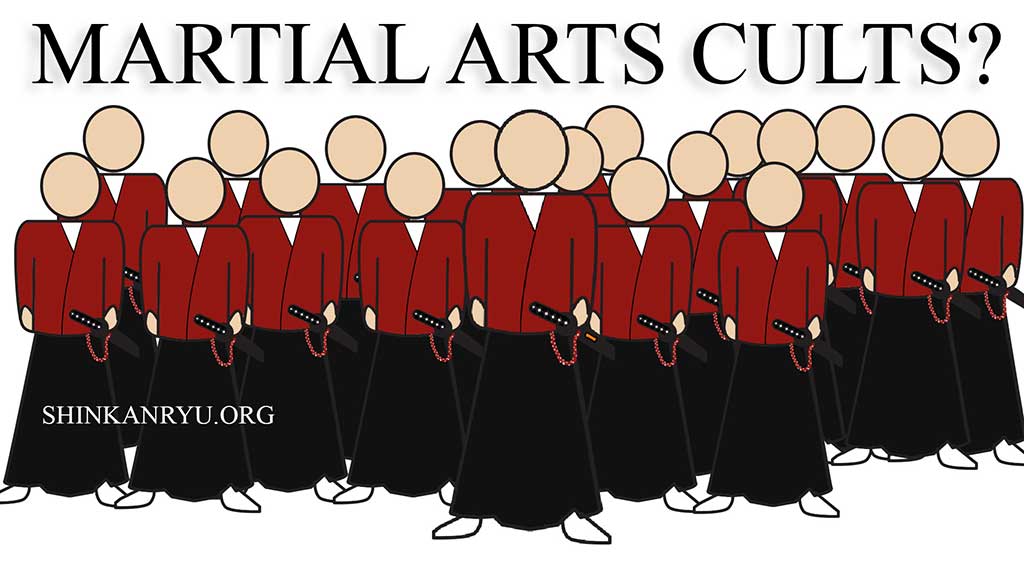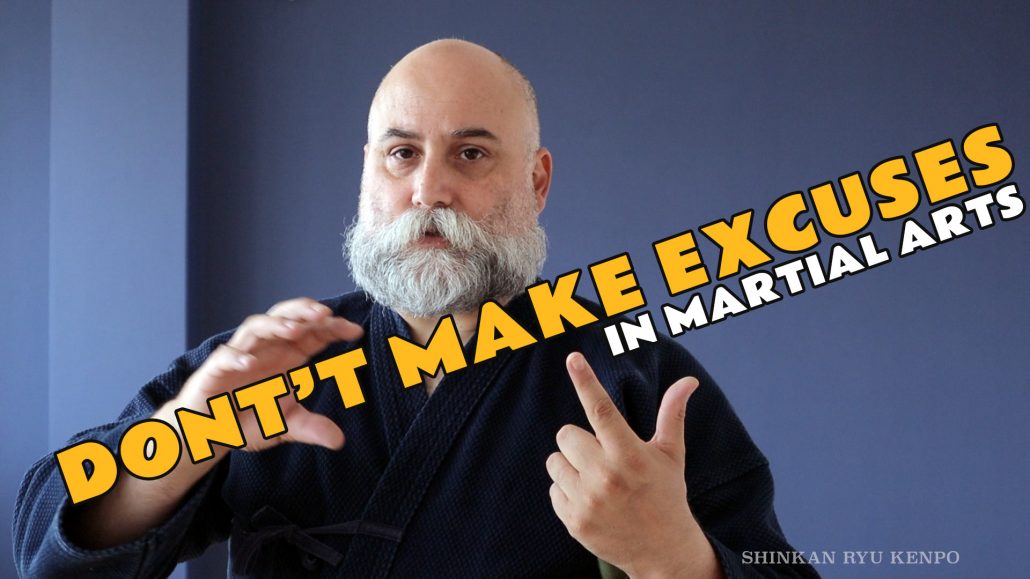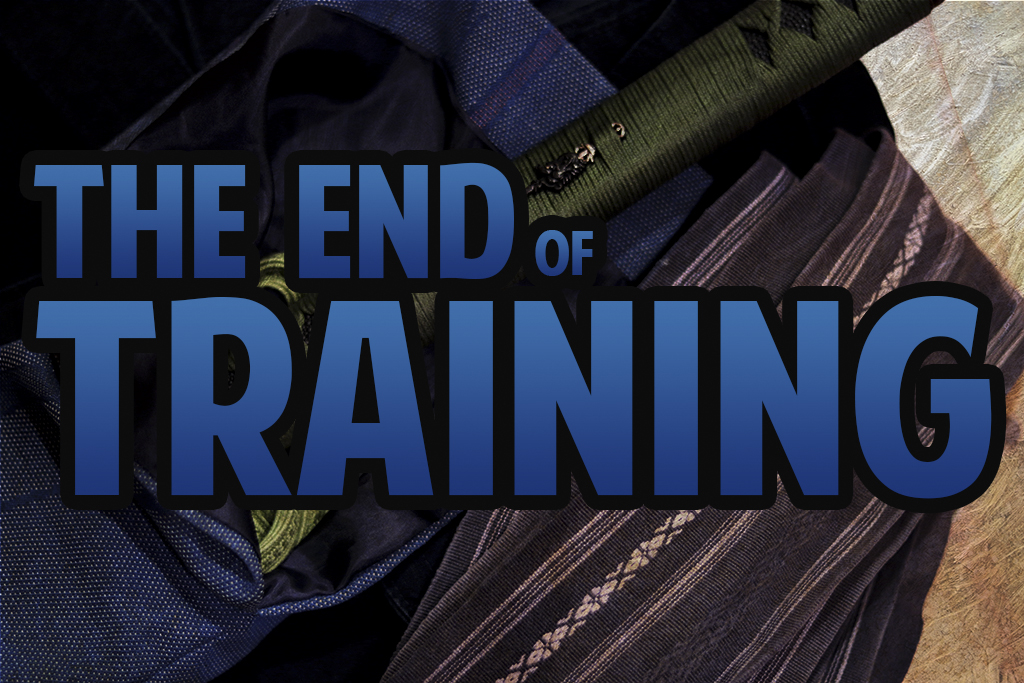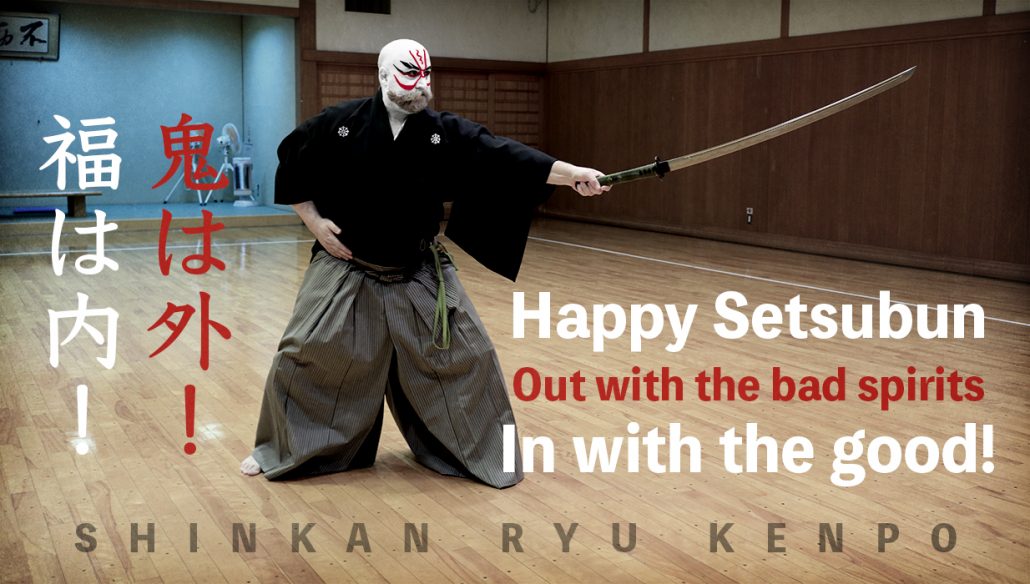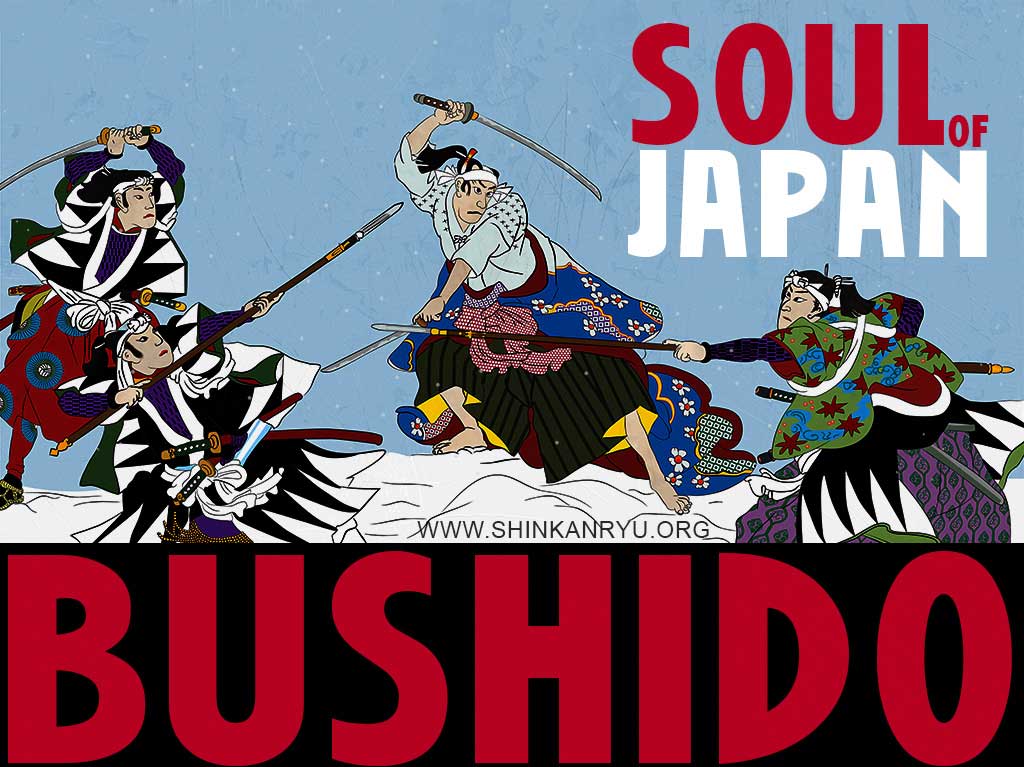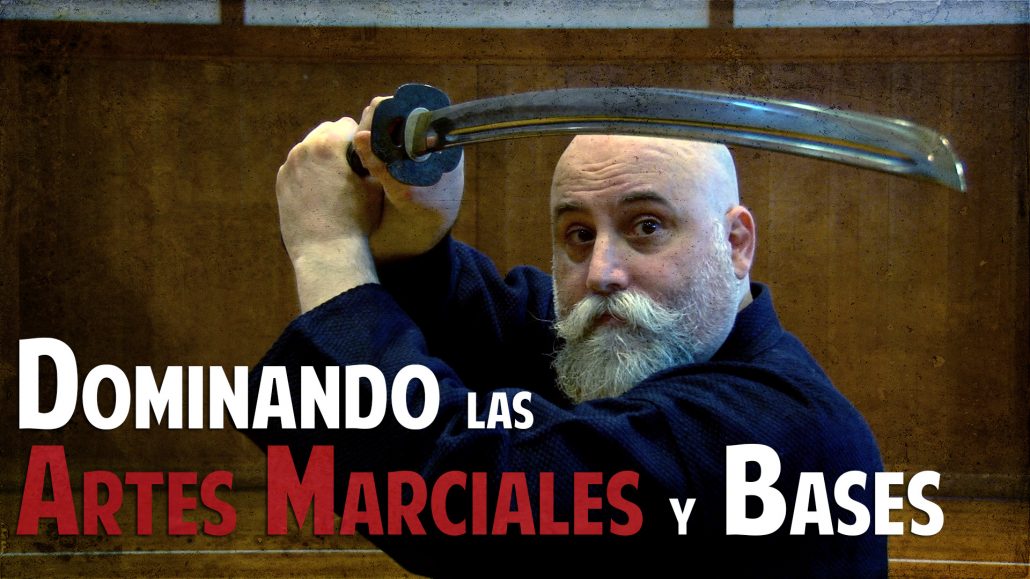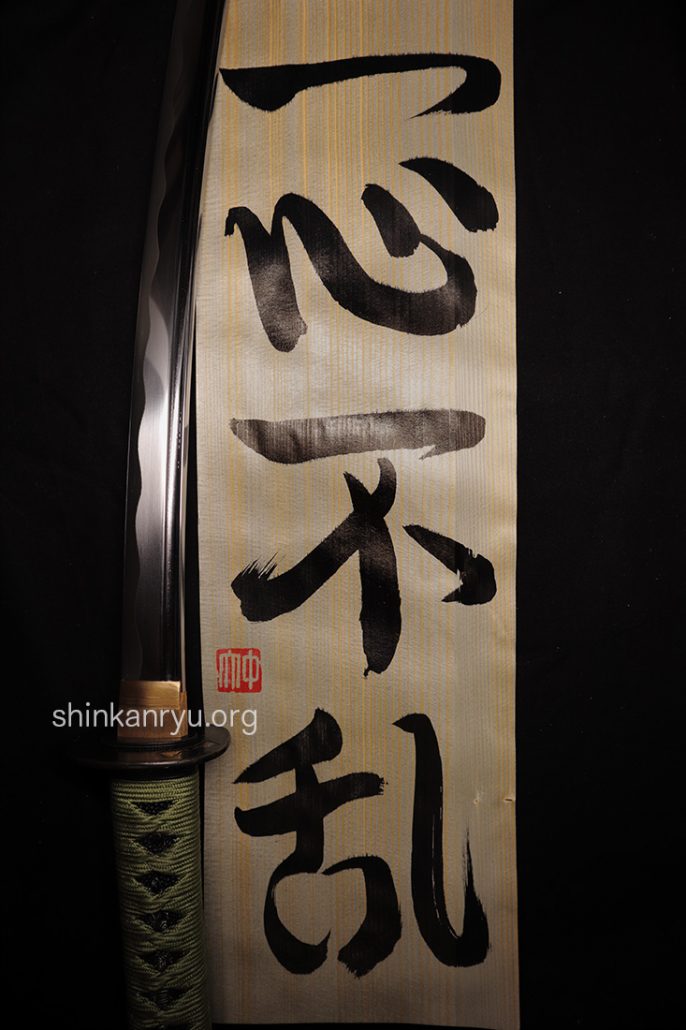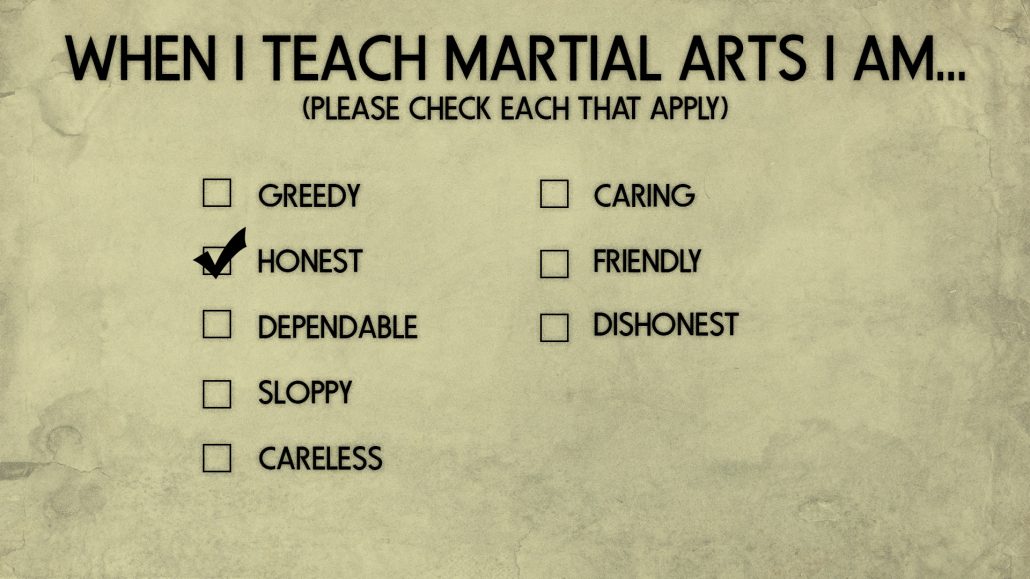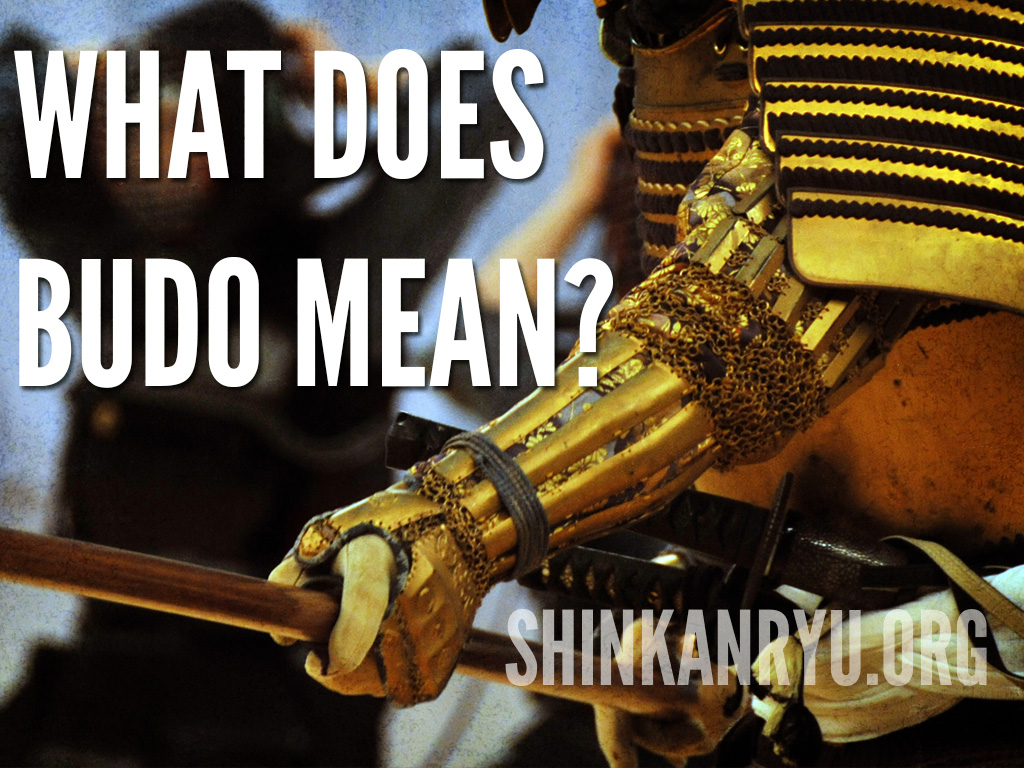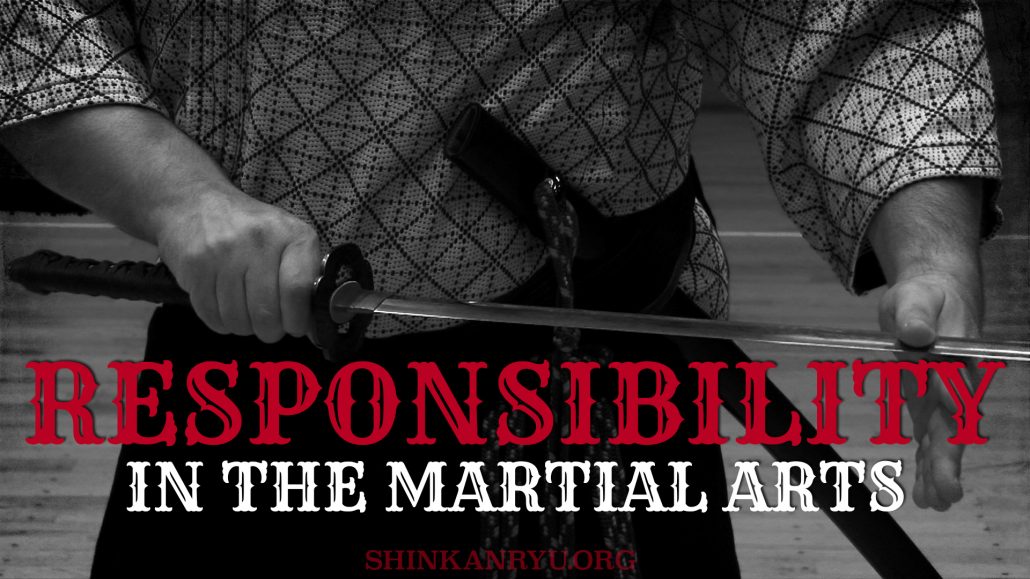Studying the arts of fighting leads to peace.
The pursuit of martial arts has one real goal, the betterment of ourselves and society through personal development and refinement. To better understand the differences between self-defense and martial arts have a look at this link here.
Having proper thought and flexibility of mind is essential in order properly practice budo. True budo is not what kind of clothes you wear or what you hang on the dojo walls. Nor is true budo about being a macho male and treating people with contempt. True budo keiko is not solely about the refinement of techniques either. It is an internal pursuit of gaining wisdom and making your life better, and in turn those around you.
People sometimes argue with a hard line that budō is purely spiritual and bujutsu is combat-oriented. Although budō and bujutsu differ semantically, and somewhat stylistically, I will use the terms budo and bujutsu interchangeably. Martial arts are not to be confused with self-defense arts. Such arts as kenjutsu, iaijutsu, and jojutsu that I study are called koryu 古流 in Japanese. These are traditional fighting systems that have been devoid of relevant combat applications since the mid-1700s at least. We should not confuse martial arts and budo with self-defense or modern military arts. The path of education and self-cultivation along with the preservation of its physical techniques is the concern of true martial arts.
Personal Growth
When we are engaging in true budō practice, the common theme is making ourselves better people. It has been the goal of many arts in Japan for hundreds of years. Like any physical art, we can separate the movements from the mind. Any astute practitioner will soon realize, however, that it is not possible to keep them separated. Learning the sword, for example, brings with it a necessity to govern the emotions and have an equanimous mind so that the weapon is not used for personal gain or malicious acts that can ultimately lead to injury or death.

True budō is not only about practicing every day religiously. While we must train at and learn the physical techniques, it is just part of the process. Because of the physicality of the arts, people tend to get mired in the body, ignoring the inner world of the mind. We must nurture our wisdom as well. True bujutsu is not about hanging scrolls or suits of armor in your practice space. It is not about how many swords you own. It has nothing to do with how many certificates or ranks you have acquired. The practice of true budō requires you to work hard on the internal world of the mind.
Having the right thinking. Knowing about universal truths.
The ability to admit mistakes and faults is paramount in budō study.
If your first thought is, 'the other person is strange, they are weird, they are wrong', then you are not a real bugeisha or warrior. You are the actual enemy opposing yourself. In life and within budo as well, as they are not separate, you are always confronting your problems before you encounter anyone else's. In fact, through proper training fixing your internal issues smooth out the issues that you face with everyone else.
Don't Be Lured By Jewels
You are not your rank. True bujutsu is not about your pedigree. Rank and title don't mean anything if you're ignorant or have a warped sense of truth. As a student, we must follow our teacher off into the wilderness without much question. As a teacher, we need to relate to students as students but also as human beings. True budo is not 100% blind faith. It is; however, faith tempered with logical and respectful questions.
Part of true bujutsu is how you treat your teacher and as a teacher how you treat your students. The titles and documents we have, in the end, do not mean anything. How we treat people and how we grow spiritually is the most important thing.
True budo is about evolution. We must physically adapt and change to our opponent. We must also improve our minds to become more supple. We must grow and evolve both inside and out. It doesn't have to be overnight, of course, but it must be happening. This type of training extends beyond the doors of the dojo. We should be reflecting on what to change within us. If we are never at fault in any way, then something is going wrong. We must investigate deeply, not just our waza but our hearts and minds.
Ignoring your teacher and senpai is not true budo. As I stated before, we must follow our teacher. Following someone also extends to those that have more experience than us. When given feedback no matter how flatly or curtly its given we should not whine or complain. We should consider feedback even from someone we are not comfortable with. There is usually at least 1% truth in a harsh remark even from an enemy or stranger.
True budō is not only about technical proficiency. It is great to have good technique, but it does not make life better for those around us. Nor does it make life easier for ourselves. We must also pick up the tools of awareness and investigate the mind just as much as we are picking up our swords and examining technique in our forms.
It Is Powerful To Apologize
In general no one wants to admit what they do is wrong. Budo tends to attract people with personality problems because in martial arts you can generally get a disproportionate feeling of power. True bujutsu is about making our bodies and minds stronger. Strength is not blocking out our teachers or seniors admonishments. Strength is not ignoring our shortcomings. Real budo is about acknowledging our faults and issues whether it's in our form or our hearts. Reducing hate, ignorance, and greed. Unfortunately, budo systems can be a home for those that do not wish to better themselves. Some can not even apologize when injuring someone. Working with other people and having a bad attitude is a serious safety hazzard.
If we can not change our wrong attitude and way of thinking, if we can't look at ourselves and think deeply it becomes an issue. When offending or hurting someone, we should still apologize and investigate what happened.
True budo practice dictates we do this always.
There are some who write books and try to assert the idea that all samurai were not interested in any spiritual refinement. However, even in the 1200s, there were kakun (family rules) or admonishments to successors that spoke about refining the character.
"[A warrior] should not speak about the faults of others, even as in jest. For even though one may think of it as a joke, to others, it may be uncomfortable, and this is a grave blunder." ~Hojo Shigetoki (1198-1261 A.D)
True budō, real bujutsu, is about respect for ourselves, our weapons and others. There are a lot of aspects of real bujutsu. Rules create safety and also contemplation, setting up a framework of decency towards others. It starts with simple things like don't shove weapons aside with your foot, or to hand a sword to someone this way or that way. It continues inward with calming your internal dialogue and allowing us to look closely at our interactions with the world. The space of ritual can help create a period for reflection and introspection.
A couple of hundred years later we have the great general, Shiba Yoshimasa, at 33 years of age write that the man whose service is war should calm his mind and look into the depths of others. Doing so is likely the best of the practice of what bujutsu is.
Real budō is clearly not about the external and more about the internal.
We (and I certainly include myself in this) should endeavor to do our best both within the world of techniques and waza and our hearts. It is the harder thing to master; ourselves. In the end, this is the real challenge.
©2019 S.F.Radzikowski

ラジカスキー真照
館長Saneteru Radzikowski is the head sword instructor of Shinkan-ryū Kenpō. He lives and teaches Iaijutsu and Kenjutsu from Nara, Japan.
Four Enemies
Four Friends. Four Enemies. One morning while on alms rounds the Buddha gave a heap...
Practice. Time Is Fleeting
In #budo as well as life, in general, we should avoid wasting time. We need...
Duping The Gaijin – Martial Arts Fraud
Some Japanese schools or individuals wish to capitalize on the ignorance of non-Japanese martial artists...
6 Years of Shinkan-ryū Kenpō
Last week marked the 6th year of Shinkan-ryū Kenpō. I want to thank the faithful...
Don’t Fall Into The Honey
You only have a little bit longer to live. The end is coming, whether in...
Striking with the Katana: What is the Monouchi?
https://youtu.be/pXpzSBLGkbI
Learning Koryū Kenjutsu & Iaijutsu Traditionally
Are Combat Skill, Self Defense & Martial Art The Same?
Why make the distinction between martial art and combat skill? I believe that combat skills...
What is Koryū?
Japanese martial arts are usually defined in two groups. Pre-modern and modern. There are no...
Bushido Chūgi The code of Loyalty
Loyalty is one of the shining points in any list about the virtues important to...
Maai; Combative Space-timing
Teaching maai 間合い, the ideas of combative spacing and timing intervals in kenjutsu.
Martial Arts Cults & Lies
I once had an interaction with someone who referred to their school as a genuine...
Making Excuses In Martial Arts
In the dojo, when I hear a student offer excuses to a teacher, I can...
The End of Training & Boredom In Martial Arts
Budō Is Limitless When does training end? When do we become a master? The short...
Happy Setsubun
鬼は外! 福は内! In our house we dont use beans to chase out the demons, we...
Bushido: The Soul of Japan
The code of the samurai is always popping up in martial arts circles and popular...
Dominando las Artes Marciales y las Bases
Hablaré acerca de bases y dominio. Antes de comenzar, quiero decir que usaré la palabra...
Bujutsu Thoughts Issin-furan
[fusion_builder_container hundred_percent="no" hundred_percent_height="no" hundred_percent_height_scroll="no" hundred_percent_height_center_content="yes" equal_height_columns="no" menu_anchor="" hide_on_mobile="small-visibility,medium-visibility,large-visibility" status="published" publish_date="" class="" id="" background_color="" background_image="" background_position="center...
Honesty and the Martial Arts Hermit. Being a good budō teacher and student.
When people want to find a martial arts teacher, do they often think of mister...
Basic Blocking In Kenjutsu
Please enjoy this informational budo video about sword blocking in classical Japanese kenjutsu. https://www.youtube.com/watch?v=_NfMrHpeGKM
What does Budō mean?
I’d like to discuss briefly discuss what Budo or Bujutsu means. I’m not a scholar...
Martial Arts Responsibility
As a martial arts instructor, or school, or especially if you’re representing an authentic Japanese...


